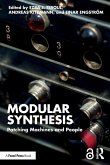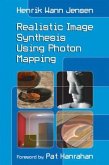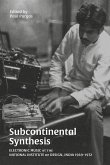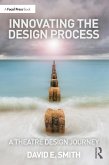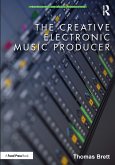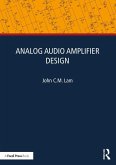Modular Synthesis: Patching Machines and People brings together scholars, artists, composers, and musical instrument designers in an exploration of modular synthesis, an unusually multifaceted musical instrument that opens up many avenues for exploration and insight, particularly with respect to technological use, practice, and resistance.
Through historical, technical, social, aesthetic, and other perspectives, this volume offers a collective reflection on the powerful connections between technology, creativity, culture, and personal agency. Ultimately, this collection is about creativity in a technoscientific world and speaks to issues fundamental to our everyday lives and experiences, by providing insights into the complex relationships between content creators, the technologies they use, and the individuals and communities who design and engage with them.
With chapters covering VCV Rack, modular synthesis, instrument design, and the histories of synthesizer technology, as well as interviews with Dave Rossum, Corry Banks, Meng Qi, and Dani Dobkin, among others, Modular Synthesis is recommended reading for advanced undergraduates, researchers, and practitioners of electronic music and music technology.
Chapter 3 of this book is freely available as a downloadable Open Access PDF at http://www.taylorfrancis.com under a Creative Commons Attribution-Non Commercial-No Derivatives (CC-BY-NC-ND) 4.0 license.
Through historical, technical, social, aesthetic, and other perspectives, this volume offers a collective reflection on the powerful connections between technology, creativity, culture, and personal agency. Ultimately, this collection is about creativity in a technoscientific world and speaks to issues fundamental to our everyday lives and experiences, by providing insights into the complex relationships between content creators, the technologies they use, and the individuals and communities who design and engage with them.
With chapters covering VCV Rack, modular synthesis, instrument design, and the histories of synthesizer technology, as well as interviews with Dave Rossum, Corry Banks, Meng Qi, and Dani Dobkin, among others, Modular Synthesis is recommended reading for advanced undergraduates, researchers, and practitioners of electronic music and music technology.
Chapter 3 of this book is freely available as a downloadable Open Access PDF at http://www.taylorfrancis.com under a Creative Commons Attribution-Non Commercial-No Derivatives (CC-BY-NC-ND) 4.0 license.
"Just when everyone thought digital had evolved into music's alpha species, modular analog synthesizers resurged after decades of dormancy. Modular Synthesis provides a valuable overview of how and why the technology that redefined the musical instrument in the 1960s became relevant and transformative again."
Nicolas Collins, composer and author of Handmade Electronic Music - The Art of Hardware Hacking
"It's no accident that the first academic collection on modular synthesizers touches on so many disciplines. Across its pages you will hear from musicians, artists, makers, and scholars from across the arts and human sciences. How many books on music discuss looms, switchboards, and electric fish? How many books on philosophy examine the material metaphors on which philosophers' ideas are based? How many books on electronics include studies of education or the gendered politics of naming? Modular Synthesis is as varied, multidisciplinary, and enchanting as its object of study."
Jonathan Sterne, author of Diminished Faculties, MP3, and The Audible Past
Nicolas Collins, composer and author of Handmade Electronic Music - The Art of Hardware Hacking
"It's no accident that the first academic collection on modular synthesizers touches on so many disciplines. Across its pages you will hear from musicians, artists, makers, and scholars from across the arts and human sciences. How many books on music discuss looms, switchboards, and electric fish? How many books on philosophy examine the material metaphors on which philosophers' ideas are based? How many books on electronics include studies of education or the gendered politics of naming? Modular Synthesis is as varied, multidisciplinary, and enchanting as its object of study."
Jonathan Sterne, author of Diminished Faculties, MP3, and The Audible Past



